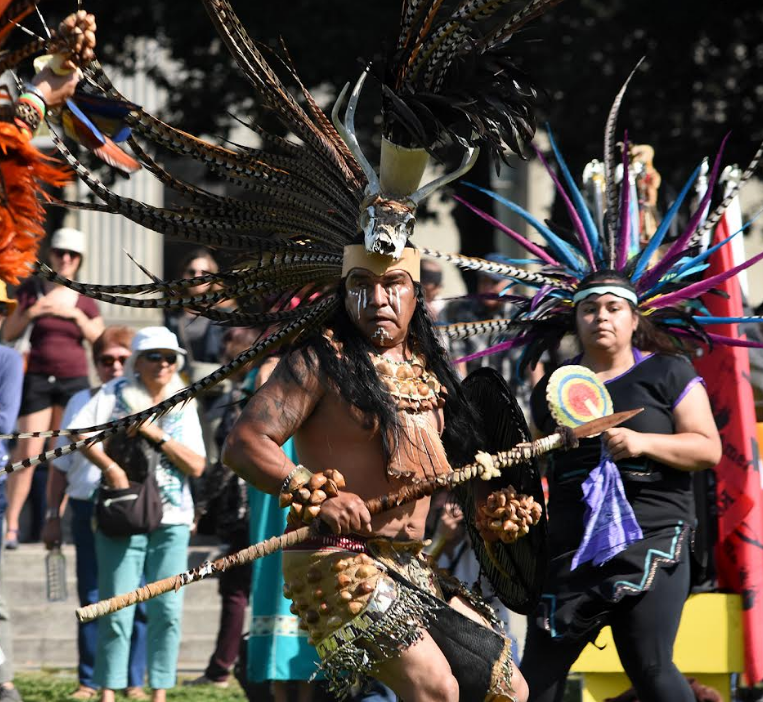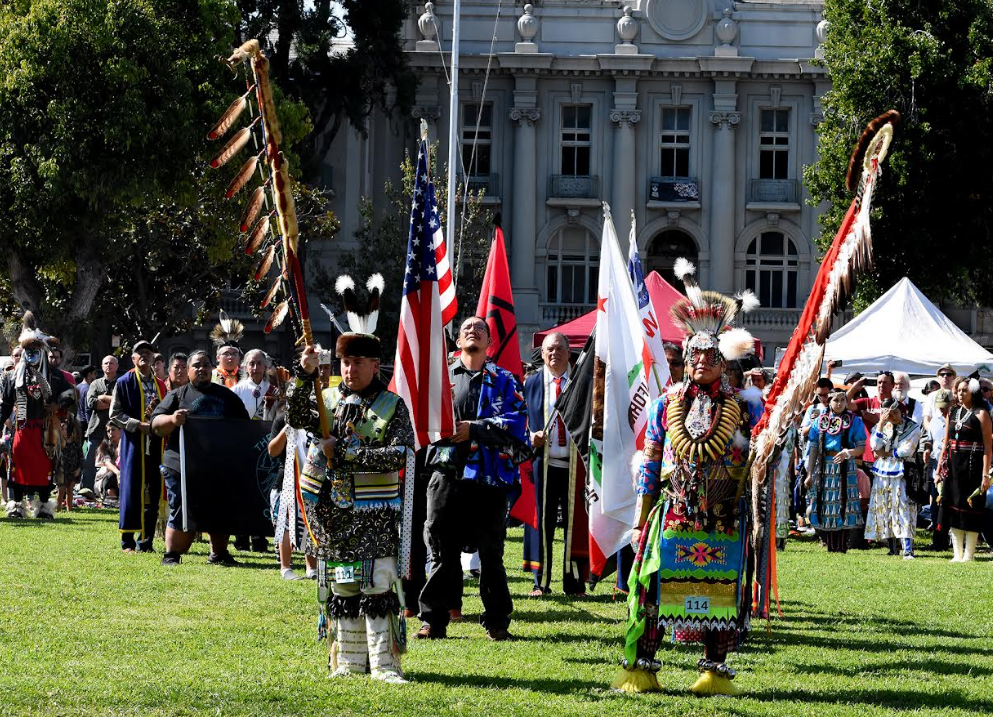
- Details
- By Native News Online Staff
On Monday, October 11, Native Americans across Indian Country will be commemorating Indigenous Peoples’ Day instead of Columbus Day. To be clear, Indigenous Peoples’ Day is not just for Native Americans.
Across the United States, 15 states and more than 130 local municipalities (counties, cities, towns, and villages) have proclaimed the second Monday of October of each year as Indigenous Peoples’ Day.
Want more Native News? Get the free daily newsletter today.
It is a day to honor the fact that Native Americans were the first inhabitants of the Americas, including the current lands that are the United States of America. Further, Indigenous Peoples’ Day is a day to recognize the many cultures, languages, history, and even the future of Indigenous people across the Americas.
Indigenous Peoples’ Day replaces Columbus Day, which dates back to 1892 when President Harrison made a proclamation observing a day set aside to celebrate Christopher Columbus. It has been a federal holiday since 1937.
Since the 1970s, Native Americans have sought to replace Columbus Day with Indigenous Peoples’ Day for multiple reasons, including dispelling the notion Columbus discovered land that was already inhabited by Indigenous peoples. Another reason Native Americans resist Columbus Day is the over glorification of a man who committed atrocities against Indigenous peoples that led to the loss of land.
The real movement to replace Columbus Day began in 1977 when the idea was first introduced at the International Conference on Discrimination Against Indigenous Populations in the Americas.
Change did not come easily.
South Dakota became the first state to rename Columbus Day in 1990. Hawai’i changed Columbus Day to Discovers’ Day, in recognition of the Polynesian navigators who first inhabited the islands.
On October 12, 1991, the International Indian Treaty Council began celebrating Indigenous Peoples’ Day on Alcatraz Island as a counter event to Columbus Day celebrations by Native Americans. On that day, some 300 people took ferries from Pier 33 in San Francisco to participate in a sunrise ceremony with a sacred fire. Recognizing Alcatraz Island is on Ohlone land, the hosts were representatives of the Ohlone nation.
During the quincentennial in 1992, the 500th anniversary of Columbus arriving in the Western Hemisphere, a group of Native Americans convinced the city council in Berkeley, California 1992 to replace Columbus Day with a day to commemorate Indigenous people.

The American Indian Movement has long sought to eliminate the observance of Columbus Day. Here is language from a press release distributed by the American Indian Movement in October 2000:
“Columbus was the beginning of the American holocaust, ethnic cleansing characterized by murder, torture, raping, pillaging, robbery, slavery, kidnapping, and forced removals of Indian people from their homelands.”
In recent years, more and more state and local governments have replaced Columbus Day with Indigenous Peoples’ Day.
Efforts are underway to replace Columbus Day with Indigenous Peoples’ Day in places that have up to this point resisted the change, led by typically local groups of Native Americans who are encouraged by the success of others with hopes of getting the change in time for the next second Monday of October so they too commemorate Indigenous Peoples’ Day officially.
More Stories Like This
Native News Weekly (August 25, 2024): D.C. BriefsSAVE THE DATE: GVSU’s “Celebrating All Walks of Life” Powwow Set for April 4th
Monday Morning: (February 16, 2026): Articles You May Have Missed This Past Weekend
US Presidents in Their Own Words Concerning American Indians
Osage Nation Mourns the Passing of Former Principal Chief Jim Gray
Help us defend tribal sovereignty.
At Native News Online, our mission is rooted in telling the stories that strengthen sovereignty and uplift Indigenous voices — not just at year’s end, but every single day.
Because of your generosity last year, we were able to keep our reporters on the ground in tribal communities, at national gatherings and in the halls of Congress — covering the issues that matter most to Indian Country: sovereignty, culture, education, health and economic opportunity.
That support sustained us through a tough year in 2025. Now, as we look to the year ahead, we need your help right now to ensure warrior journalism remains strong — reporting that defends tribal sovereignty, amplifies Native truth, and holds power accountable.
 The stakes couldn't be higher. Your support keeps Native voices heard, Native stories told and Native sovereignty defended.
The stakes couldn't be higher. Your support keeps Native voices heard, Native stories told and Native sovereignty defended.
Stand with Warrior Journalism today.
Levi Rickert (Potawatomi), Editor & Publisher

